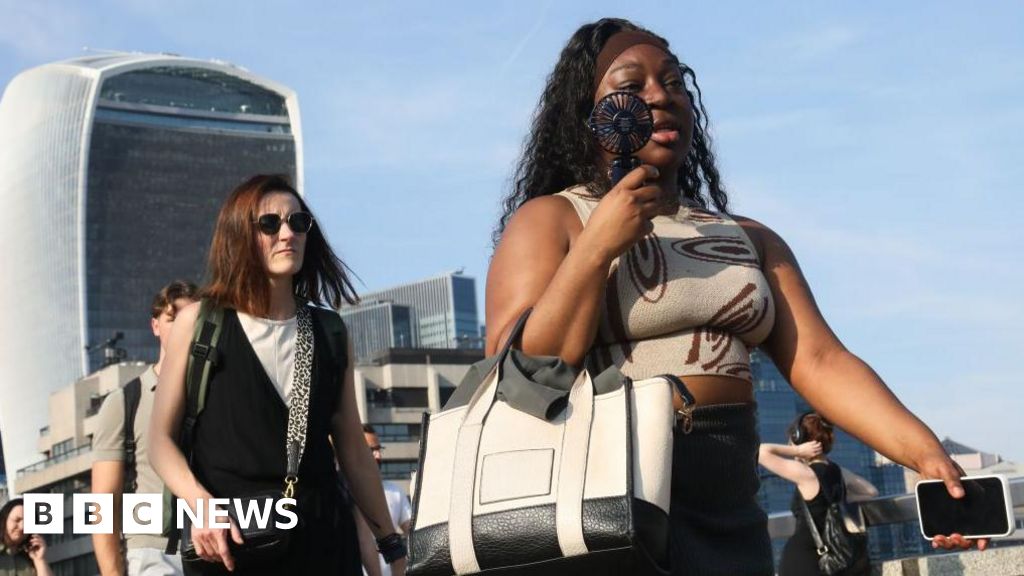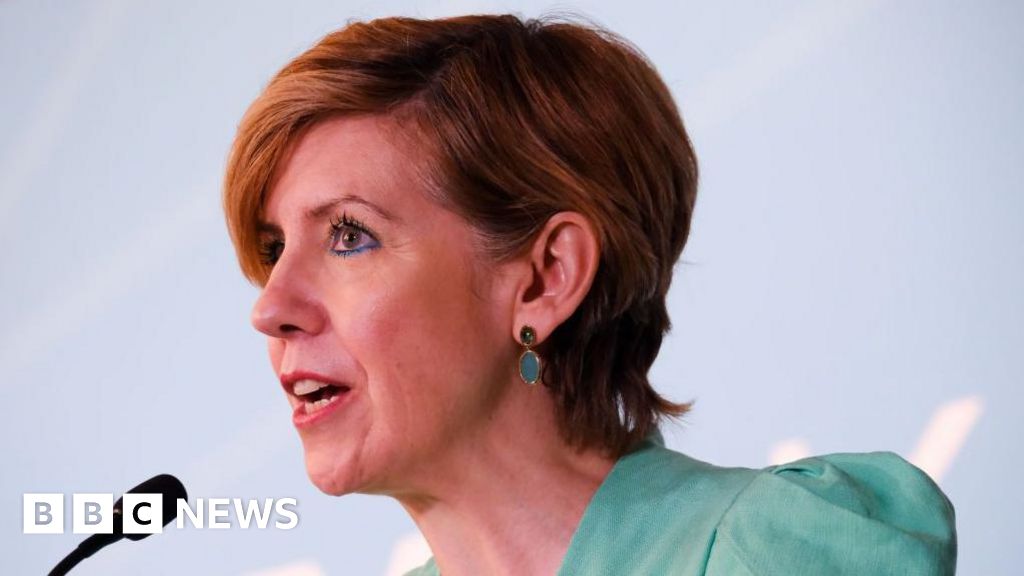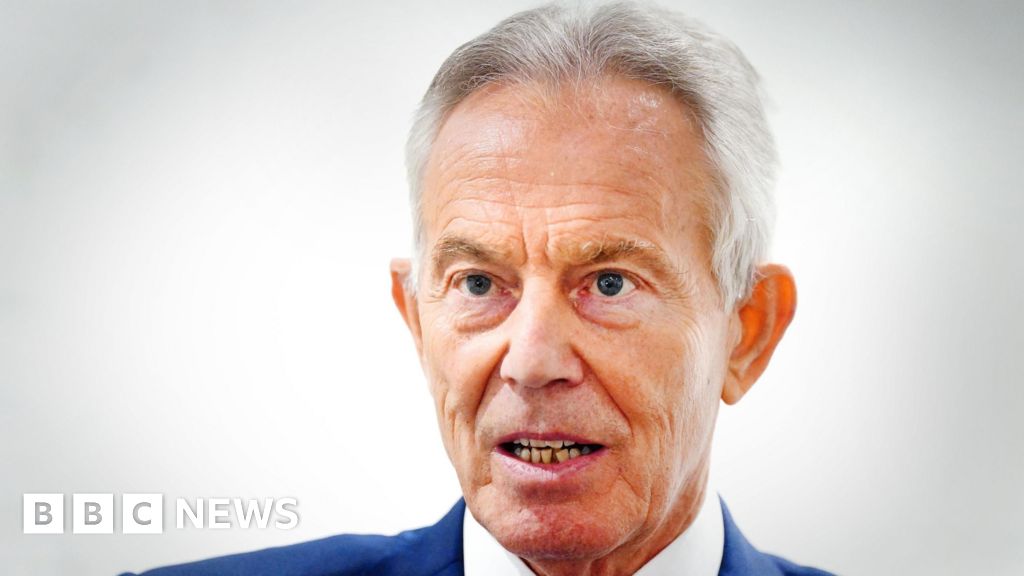ARTICLE AD BOX
By Ross McKee and Gareth Gordon
BBC News NI
Image source, PA Media
Image caption,Tony Blair said any solution was "not a matter of technical work but political will and leadership"
Former prime minister Sir Tony Blair has said the EU and the UK should "show maximum flexibility in order to reach an agreement" over the Northern Ireland Protocol.
He made his comments in a new report by his Institute for Global Change.
Sir Tony said any solution was "not a matter of technical work but political will and leadership".
Sinn Féin dismissed Sir Tony's claim that the protocol puts the Good Friday Agreement at risk.
Sir Tony said the "issues at the heart of the protocol have the capability of causing an enlarged trade conflict between the UK and the EU, or undermining the Good Friday Agreement - and quite possibly both".
Speaking at a news conference in Brussels, Sinn Féin president Mary Lou McDonald said she was not aware of Mr Blair's comments.
However, she rejected any idea that the protocol undermines the Good Friday Agreement.
"Nothing could be further from the truth," she added.
"The facts are that Brexit caused a huge difficulty for the Good Friday Agreement settlement.
"We've said that consistently from the beginning that Brexit and the Good Friday Agreement were incompatible and we had to find better mechanisms to address that."
Image source, EPA
Image caption,Sinn Féin president Mary Lou McDonald was speaking in Brussels on Wednesday
Ms McDonald, who met the EU's chief negotiator Maroš Šefčovič on Wednesday along with Sinn Féin deputy leader Michelle O'Neill, said the protocol was supported widely and by a majority of assembly members in Northern Ireland.
Ms O'Neill said the meeting with Mr Šefčovič was positive and that talks needed to take place between the EU and the UK "on the basis of good faith and joint solutions".
Addressing Sir Tony's comments, Democratic Unionist Party (DUP) leader Sir Jeffrey Donaldson tweeted that the protocol "doesn't protect" the Good Friday Agreement.
"It has the potential to destroy it," he said. "Time others woke up to this reality!"
Sir Tony said the report was "at least, a possible landing zone for resolution of the dispute".
"It could be done within the framework of the protocol, but would require significant movement from the EU on its stated position around the protocol's interpretation," he said, in a foreword to the report.
"My judgement - with long experience of EU negotiations - is that things have reached such a state of distrust that the two bureaucratic systems will not settle this; it has to be done at the highest political level because, ultimately, it is not a matter of technical work but political will and leadership."
Unionist parties support Northern Ireland being part of the UK and argue that placing an effective border across the Irish Sea undermines Northern Ireland's place within the UK.
Northern Ireland's largest unionist party, the Democratic Unionists (DUP), is refusing to take part in Northern Ireland's power-sharing government unless its concerns are resolved.
Even though the DUP came second in May's elections to Sinn Féin - a nationalist party which accepts the protocol - a new Northern Ireland government cannot be formed without its support.
Sinn Féin has accused the unionists of believing they can "hold society to ransom".
The basics
- The Northern Ireland Protocol is part of the Brexit deal: it means lorries don't face checkpoints when they go from Northern Ireland (in the UK) to the Republic of Ireland (in the EU)
- Instead, when goods arrive in Northern Ireland from the rest of the UK (England, Scotland and Wales), they are checked against EU rules
- The UK and the EU chose this arrangement because the Irish border is a sensitive issue due to Northern Ireland's troubled political history
Ms Truss insisted the bill would be legal under international law.
In response to Ms Truss's statement, the EU said it would "need to respond with all measures at its disposal" if the UK went ahead with the legislation.

 2 years ago
35
2 years ago
35








 English (US) ·
English (US) ·